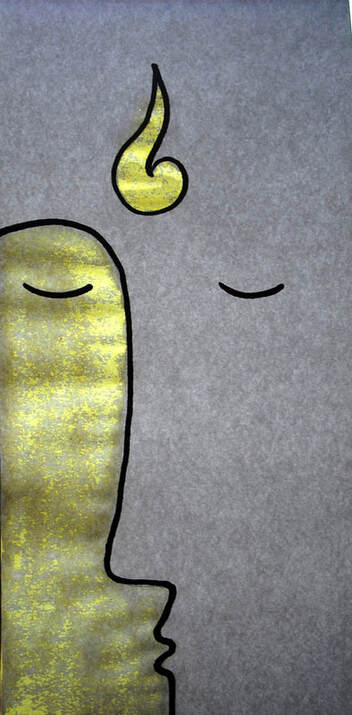|
In order to yield insight the mind has to get beyond thought. This can be purely through the meditation process or we can also use other skilful means to train our minds towards this goal. Two ways of taking the mind toward silence are through contemplative poetry or art. To appreciate certain poetry one has to read or listen quietly, in a way that does not analyse the words but allows the mind to form a picture. Art of a more abstract nature is similar – we look with an attention that is not too tight nor too loose. A mind that is relaxed and open, yet attentive, allowing an impression to form.
This ability to allow a picture to form in the mind based upon sense impressions is part of the insight process. There is also a degree of sense or sensual restraint, a composure of the senses, that does not get into detail, grasping or fondling or criticising. It is a way we can begin to open the mind. This is a refined aesthetics rather than a coarse level of appreciation. In my opinion, however, such refined aesthetics can get us stuck. It is looking for the best of both worlds – the sublime form and the space – not realising the greater pleasure and purity in the completely open and free mind and heart, which is at one with space. Our next step in this direction is to recognise through mindfulness that beauty is not just in the object, it is literally in the heart and eye of the beholder (mindfulness is therefore also a natural creator of art or poetry). In fact the appreciation of the mind itself can give a stronger impression than the object. In this way we find a source of enjoyment at least semi-independent of the sense world. There is a kind of refined sensuality to do with light and space where the line begins to blur between the light of the world and the brightness of the mind, for example. This becomes like heaven. If we can see heaven on earth in this way, it is like the gradual path where the Buddha teaches us to see the advantages of the refined heavenly realms as a way to let go of coarser, worldly sense pleasures. This lightness of touch prepares us for the experience of entering samādhi through contemplating the suffering of the world. Here the experience of the emergence of the mind itself overwhelms us as we further let go of our attachment. This is a very different kind of pleasure, the bliss of the mind opening rather than sensually grasping or fondling. Comments are closed.
|
Categories
All
|
Open The Sky - Reflective and creative work by Ajahn Kalyano

